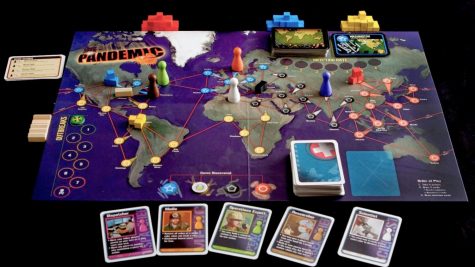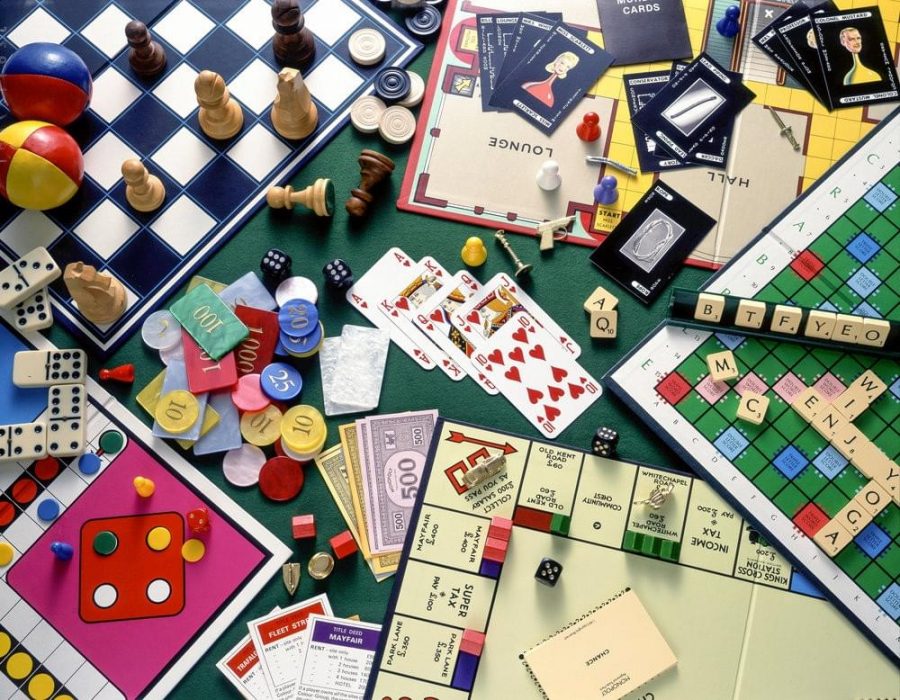In Support of Tabletop Games
As everyone knows, video games are all the rage today. With their flashy graphics, hours-long storylines, and dubious return policies, it is no wonder why they capture the attention of so many seeking an escape from boredom that will last for hours on end. They come in every flavor imaginable: multiplayer, single-player, turn-based, real-time. In today’s digital (and distanced) world, it only makes sense that digital games are the proverbial talk of the town.
However, I come to you with an alternative, one primed for a comeback as our world inches towards reopening and people flock to friends, family, and freedom from isolation. I speak, of course, of tabletop games.
“Tabletop game” is a broad term, but here it will be used to refer to any physical game played in a group setting, either using cards, a board, dice, or your imagination. Something as simple as Monopoly is a tabletop game, but the community is far more expansive than the handful of mainstream board games that are manufactured by major companies. With so many genres covered, there is truly a tabletop game for everyone. Furthermore, unlike their video counterparts, tabletop games do not require you to learn controls, have advanced hardware, or strain your retinas; all they require is a flat surface, a willing group, and the contents of the box. Anyone from age 9 to 99 can play them, and the satisfaction of seeing the look on the face of your opponent as you defeat them (or their triumph, should the game be team-based) is second to none.
Even as video games like Among Us sweep the social deduction game scene, classic tabletop alternatives like Bang! provide the experience of mystery, trust, and betrayal in a more personal setting. Using a card-based system, Bang! combines the tactics of a card game with the role-based chaos of a mafia-style game, leaving players with hidden identities to determine who among them seeks to duel the sheriff and who wants to protect them.
Prefer a rapid-fire competitive game? Sushi Go! is a fast-paced, simple card game themed around, well, sushi. Each turn, you are given a hand and must choose a card to keep, scoring points by forming pairs, triplets, and sets of different sushi rolls. You then must pass your hand to the next player, giving them what they need to make or break their round. Do you go for a 10-point triplet of sashimi cards but risk never completing the set, or do you play it safe and accumulate low-value dumplings?
More interested in a cooperative experience? Sentinels of the Multiverse, another card-based game, has each player take up the mantle of a unique superhero to defeat a maniacal villain. Players work as a team by drawing from their themed decks to create a hand of unique “powers” and play cards to power up their allies and deal damage to the villain and their minions. Then, players are forced to draw from the villain’s deck and fend off their attacks! 
The team-based genre also contains many notable board games. Pandemic sees you working as a specialist in a team seeking to eradicate four plagues sweeping the world. Each player has their own role, from a logistics specialist establishing quarantine zones to a researcher gathering essential information. Players venture across the globe collecting location cards, choosing whether to use the information they gain to advance their search for a cure or to travel to breakout sites faster. Similar to Sentinels, Pandemic has players draw from specific decks to determine what negative effects apply every round. Only through careful coordination can the four diseases be cured and the game come to a successful conclusion.
Want a wholly unique team-based experience? Captain Sonar pits teams of submarine crewmates against one another in a tense standoff. Each player has a different role: sonar operators must monitor the enemy’s movements and pinpoint their location, the engineer must keep their systems operable, the first mate must keep the ship’s mechanisms readied, and the captain must call the shots. Using just a few ship cards, dry-erase markers, and a dividing screen, Captain Sonar creates an atmosphere more intense than many video games, and I highly recommend giving it a try.
The examples I have listed are just a select few of the vast world of tabletop gaming. Games representing every genre, every theme, and every interest can be found on the shelves of game stores and the listings of Amazon alike. Unfortunately, we are not yet able to meet up and enjoy such activities in person. In the meantime, I ask you to think about giving these games a chance. I’d be willing to bet you won’t regret it.
Additionally, if you are interested in trying a few games in a virtual setting, I would recommend attending one of Mitty’s Tabletop Games Club meetings as well. Using online simulators, the group has done the best they can to translate the gaming experience into the digital world. They meet every other Thursday and take game requests every meeting, so look out for them on the morning announcements!


